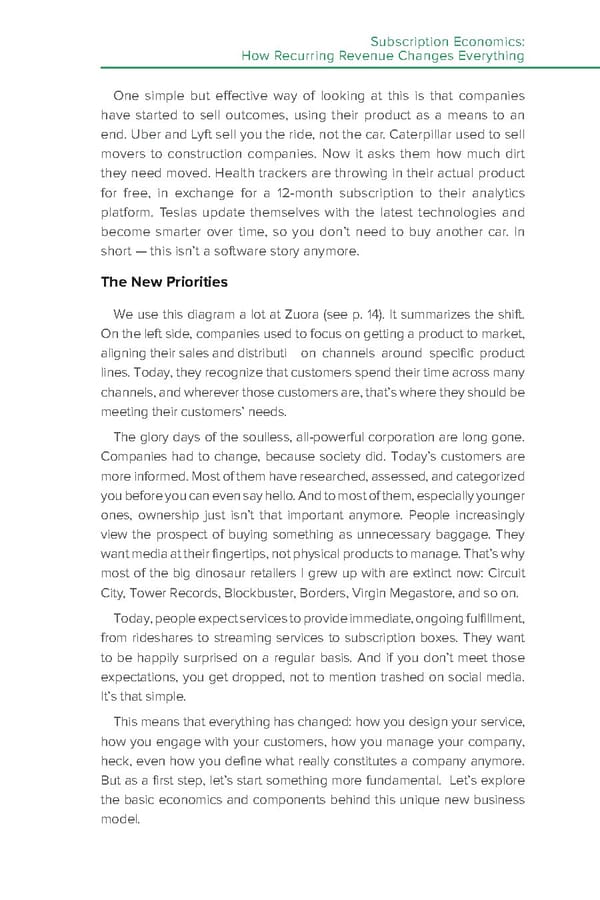Chapter 1 Subscription Economics: How Recurring Revenue Changes Everything One simple but effective way of looking at this is that companies have started to sell outcomes, using their product as a means to an end. Uber and Lyft sell you the ride, not the car. Caterpillar used to sell movers to construction companies. Now it asks them how much dirt they need moved. Health trackers are throwing in their actual product for free, in exchange for a 12-month subscription to their analytics platform. Teslas update themselves with the latest technologies and become smarter over time, so you don’t need to buy another car. In short — this isn’t a software story anymore. The New Priorities We use this diagram a lot at Zuora (see p. 14). It summarizes the shift. On the left side, companies used to focus on getting a product to market, aligning their sales and distributi on channels around specific product lines. Today, they recognize that customers spend their time across many channels, and wherever those customers are, that’s where they should be meeting their customers’ needs. The glory days of the soulless, all-powerful corporation are long gone. Companies had to change, because society did. Today’s customers are more informed. Most of them have researched, assessed, and categorized you before you can even say hello. And to most of them, especially younger ones, ownership just isn’t that important anymore. People increasingly view the prospect of buying something as unnecessary baggage. They want media at their fingertips, not physical products to manage. That’s why most of the big dinosaur retailers I grew up with are extinct now: Circuit City, Tower Records, Blockbuster, Borders, Virgin Megastore, and so on. Today, people expect services to provide immediate, ongoing fulfillment, from rideshares to streaming services to subscription boxes. They want to be happily surprised on a regular basis. And if you don’t meet those expectations, you get dropped, not to mention trashed on social media. It’s that simple. This means that everything has changed: how you design your service, how you engage with your customers, how you manage your company, heck, even how you define what really constitutes a company anymore. But as a first step, let’s start something more fundamental. Let’s explore the basic economics and components behind this unique new business model.
 Subscription Economics Page 6 Page 8
Subscription Economics Page 6 Page 8